Exploring Boquete: Panama’s Premier Retirement Haven
Nestled in the verdant highlands of Panama’s Chiriquí Province, Boquete is a small town with a big reputation. This charming...
Top Destinations:
Whether you’re looking for fun and sun, a peaceful retirement, or the chance to earn some extra income, you’ve got a real world of opportunity open to you… In short, we’ve done our best to narrow down your best options, but only you can decide the right country for you.
Best For:
How Much Will It Cost You To Live Overseas?
The only honest answer is, we have no idea. And neither does anyone else. The only one who can answer that question is you. Here’s the most important thing to understand about budgeting your new life overseas…
Follow Us:
Join our Weekly Newsletter
Overseas Property Alert
Sign up for our weekly newsletter to receive expert insights on the best international real estate investment opportunities.
Upcoming Events
Access France Workshop
International Property Summit
Caribbean Virtual Conference
VIRTUAL
May 15, 2025
PANAMA CITY, PANAMA
JUNE, 2025
VIRTUAL
July 17-19, 2025
Contact Our Events Team
Reach us with your questions by email at: events@liveandinvestoverseas.com
Unlock The World
Overseas Havens Reports
Conference Kits
Lahardan Books
Our Customer Service team is here to assist with any questions or concerns CustomerService@LiveandInvestOverseas.com
Top Destinations:
Whether you’re looking for fun and sun, a peaceful retirement, or the chance to earn some extra income, you’ve got a real world of opportunity open to you… In short, we’ve done our best to narrow down your best options, but only you can decide the right country for you.
Best For:
How Much Will It Cost You To Live Overseas?
The only honest answer is, we have no idea. And neither does anyone else. The only one who can answer that question is you. Here’s the most important thing to understand about budgeting your new life overseas…
Follow Us:
Join our Weekly Newsletter
Overseas Property Alert
Sign up for our weekly newsletter to receive expert insights on the best international real estate investment opportunities.
Upcoming Events
Access France Workshop
International Property Summit
Caribbean Virtual Conference
VIRTUAL
May 15, 2025
PANAMA CITY, PANAMA
JUNE, 2025
VIRTUAL
July 17-19, 2025
Contact Our Events Team
Reach us with your questions by email at: events@liveandinvestoverseas.com
Unlock The World
Overseas Havens Reports
Conference Kits
Lahardan Books
Our Customer Service team is here to assist with any questions or concerns CustomerService@LiveandInvestOverseas.com
LIVE AND INVEST IN PANAMA
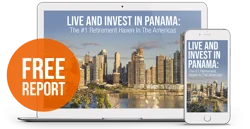
WORLD’S #1 RETIREMENT HAVEN
IN THE AMERICAS
We Value Your Privacy! We will not share your email address with anyone else, period.
Home » Best Countries To Live, Invest, And Retire Overseas » Panama: Everything You Need To Know In 2025 » Panama City, Panama
Panama City is the most developed city in Central America. Learn all about the neighborhoods, transport, and cost of living in Panama City.
Learn more about Panama and other countries in our free, daily Overseas Opportunity Letter, plus our In Focus: Panama newsletter Simply enter your email address below and we’ll send you our FREE REPORT: Panama: The #1 Retirement Haven In The Americas
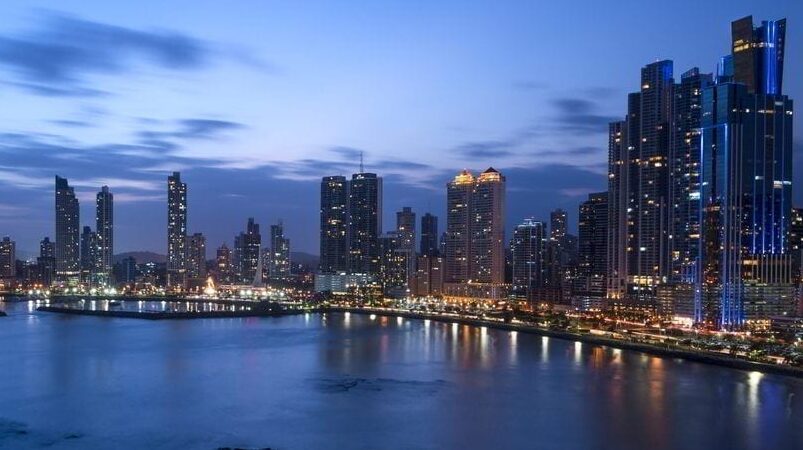
When considering Panama City, it’s important to keep a couple of things in mind.
The city is huge, and things vary from district to district. Plus, if you are looking to live in Panama City, we recommend that you divide the city into the areas that best suit your lifestyle and tastes.
In fact, neighborhood to neighborhood in Panama City, everything is different:

Reviewed By Kathleen Peddicord
Kathleen is the Live and Invest Overseas Founding Publisher. She has more than 30 years of hands-on experience traveling, living, and buying property around the world.

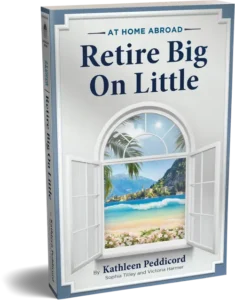
Start Your New Overseas Life Today
A world full of fun, adventure, and profit awaits! Sign up for our free daily e-letter, Overseas Opportunity Letter, and we’ll send you a FREE report on the 10 Best Places To Retire In Style Overseas Today 2024
We Value Your Privacy! We will not share your email address with anyone else, period.
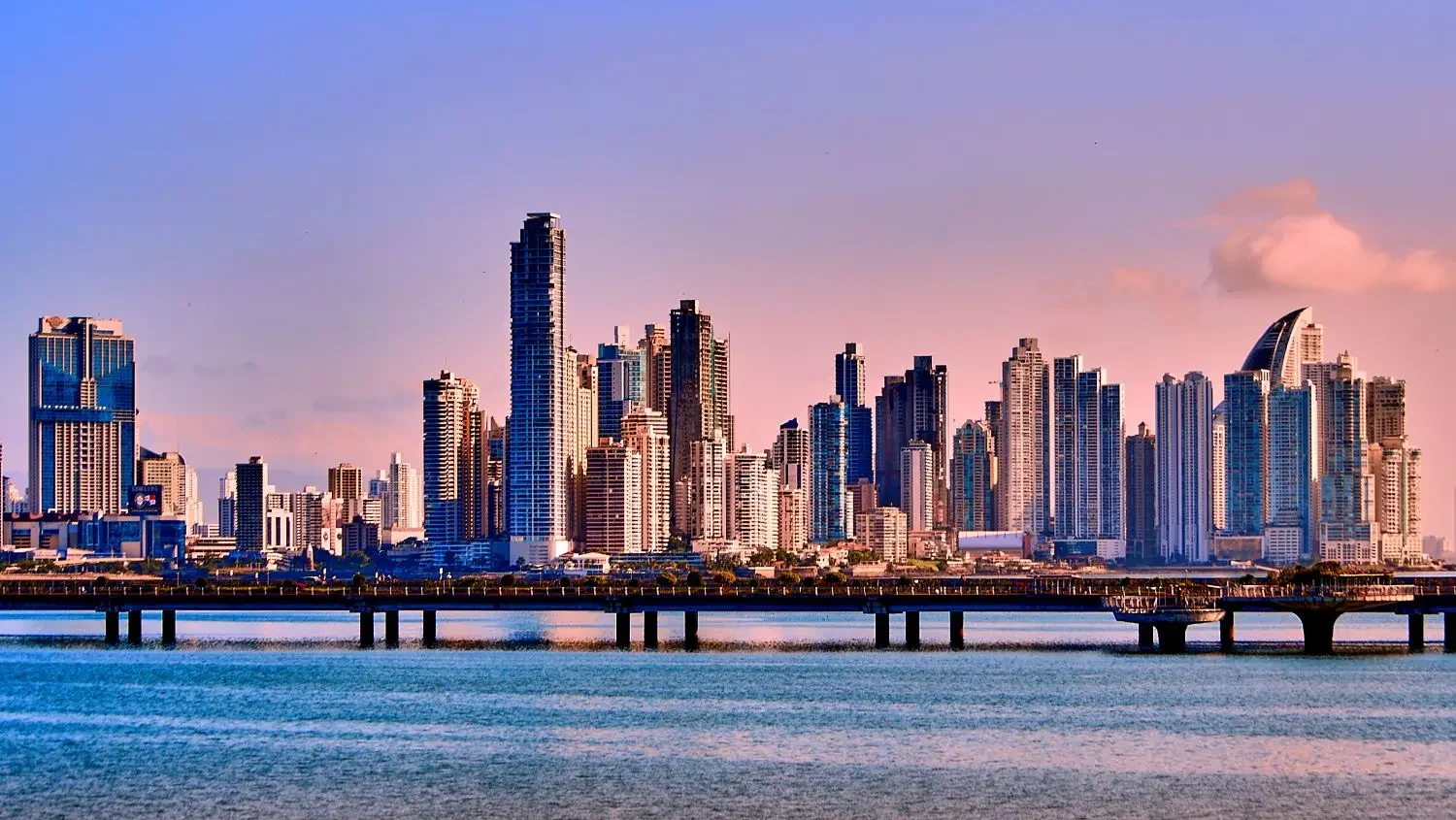
In some Panama City neighborhoods (notably Costa del Este), you’ll feel like you’re living in a Miami suburb. In others (Casco Viejo), you’ll know you’re in the Third World.
In the areas of Marbella around Calle Uruguay (where some nightclubs congregate), you’ll like for a decent night’s sleep, especially on Friday and Saturday nights.
Others (in fact, many qualify on this score) will shake you awake every morning to the sounds of jack-hammers all around. Don’t forget, Panama City has major infrastructure projects being built.
The types of real estate available (from high-rise apartments to single-family homes, from suburban development communities to 300-year-old colonial buildings, etc.) and the costs per square meter vary. Sometimes even dramatically.
Near the airport, this is a suburban area, fast growing with its own grocery stores, schools and other services.
Created in 1995, it is one of the largest and most exclusive developments in the city. Its design meets first world standards like residential areas with restricted access, underground wiring, and its own water processing plant. There are homes and a few high rise projects.
In residential terms, it is the second highest valued property area in Panama City. The Balboa Avenue takes the first place.
A high-end area on a landfill peninsula that extends into the Pacific Ocean. This exclusive neighborhood is next to lavish malls, high rent offices and is home to the most luxurious high rise condos and hotels in Panama with fantastic sea views. Examples include the Ocean Club International Hotel and Tower (formerly Trump Ocean Club International Hotel and Tower).
There’s a select development project in this area: The “Ocean Reef Islands” and it features two artificial islands.
It’s geared towards an upscale market interested in exclusive condos. This massive project has world-class amenities, a high-end marina, and even helipads.
Next to and similar to Punta Pacífica, but older and with fewer new offerings, mostly resales. Luxury condos and developed neighborhood has some condo re-sales with fantastic views of the city and ocean. It has amenities like close-by malls, hotels like the Radisson and Hard Rock Hotel Panama Megapolis, and the Paitilla Medical Center.
The banking along the main ocean side boulevard that is the heart of Panama City. Home of Panama’s business elite. Skyscraper offices and condos offer towering views of the Pacific and Casco Viejo.
The magnificent antique part of town where French influence is clear among these lovely facades. There’s so much talk about the potential of this fabulous area that is still being renovated by foreign and local investors alike.
Casco Viejo was a slum some years ago. Now, Casco Viejo is an evolving gentrification project and the hippest night spot in the city.
The Spanish-, French-, and American-colonial structures here, a world-class UNESCO-protected collection of buildings, renovated into private homes, condos, restaurants, bars, art galleries, and shops. The whole place now is encircled by a highway suspended above the water.
Nightlife, boating and tourism area, home to projects that are excellent investment opportunities. This area stretches out to the sea and greets ships as they enter the Canal. Sweeping views return to the mainland city and Casco Viejo.
Another spot in Panama City that should be on any nature lover’s list is the newly opened Biomuseo, at the base of the Causeway.
Designed by architect Frank Gehry, the Biomuseo has a contemporary structure in the category of the Pompidou Museum in Paris.
Plus, the museum’s exhibits feature Panama’s biodiversity and is curated by the Smithsonian Institution, and the University of Panama.
This is a former military (Air Force) base converted to a residential area with homes and large yards. It features renovated former officer’s homes, newly constructed houses, and condos.
Residents in this area enjoy greenery and a country feel, despite being just minutes from the city.
A former military (Army) base home to the “City of knowledge” or Ciudad del Saber. Nice rural housings, lots of green areas and a slower, more residential suburban feeling that’s preferred by many families and retirees.
This residential neighborhood with small parks and several new high rise condos under construction. Great for those looking to invest in rentals. El Cangrejo epitomizes urban life in Panama.
The neighborhood itself is at once fascinating, exciting and slightly intimidating. All manner of people pops up in El Cangrejo. This neighborhood has it all: With its active nightlife of clubs, pubs, concerts, casinos, cafés, and theaters, there is a little something for everyone.
El Cangrejo, which translates to English as “the crab,” is so named because the layout of its streets somewhat resembles the shape of a crab. Founded in the 1950s by Jewish residents, at the time it was the most modern and exclusive neighborhood in Panama City.
It took on a more diverse makeup in recent years, as the Jewish community moved to the Punta Pacífica and Costa del Este.
The legacy of the Jewish community is present thru memorials to the great Albert Einstein in and around the area. This includes a giant statue of his head and both a plaza and a clinic named after him.
Get Your Free Panama Report Today!
Simply enter your email address below and we'll send you our FREE REPORT - Live And Invest In Panama: The #1 Retirement Haven In The Americas.
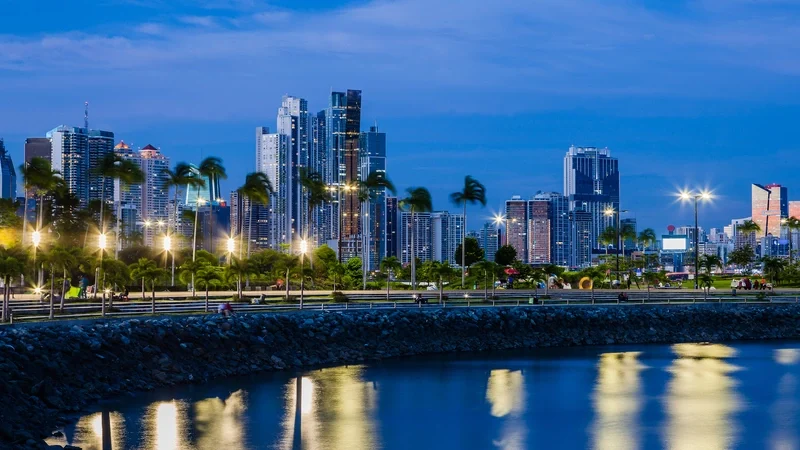
The high-rise buildings in Avenida Balboa have one of the best views in Panama City. Looking out across the Pacific Ocean you will feel the sea breeze. This arrives whenever the sun is shining.
Close to Avenida Balboa you have the Cinta Costera which is a great place to exercise. As well as a scenic foot and cycle path there are free basketball and football courts available. You can also use the free gyms as well.
Avenida Balboa is home to Panama’s most luxurious shopping malls and schools. There is also the fish market serving some of the best ceviche you can find.
One of the most modern areas of Panama it seems that every building here is a skyscraper.
Casco Viejo means Old Town. Casco is home to the majority of the remaining colonial style buildings in Panama City. It feels a world away from the concrete and steel which makes up many of the other districts.
By day Casco has a sleepy feel, even the passing traffic feels insignificant next to the ancient buildings. And, at night Casco comes alive and is home to many of the best bars and clubs in Panama City.
In the past this was one of the most exclusive areas in Panama City but is now moderately priced. El Cangrejo is popular with younger expats and young Panamanians.
The benefits of living in El Cangrejo are its central location. It has great transport links to the rest of Panama. El Cangrejo is also an area full of amenities such as bars, restaurants, and supermarkets. This area has everything you need for day to day living.
Punta Pacifica is where Panama’s wealthiest citizens choose to live and one of the most expensive areas in Panama City. There are gated communities and some amazing views across the bay.
Most importantly, it has all the amenities you could. If budget is no concern, then Punta Pacifica maybe the best place to live. The Ocean Club (formerly Trump Ocean Club) is Punta Pacifica’s most recognizable landmark.
San Francisco is an up-and-coming area in Panama City. It is one of the areas attracting interest from investors.
Also, San Francisco is popular with Panama’s rapidly growing middle class population.
The area retains a quiet and secluded feel with parks and trails for walking and jogging. Panama’s largest park, Parque Omar, is situated here.
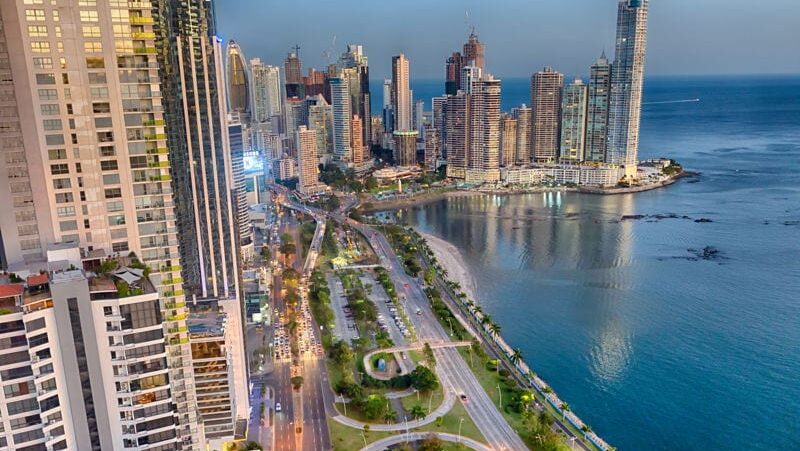
Panama City is no longer a bargain destination: Although it is cheaper than other major capital cities, it is not cheap to live here.
Public transportation in Panama City is dependable and well-priced. And, if you are planning on having consider that gasoline is US$3.25 per gallon.
Toll roads within Panama City are called Panapass. They need you prepay via the internet. Plus, you need a car windscreen sticker which is read by the scanner as you approach the toll gate.
Various motorways are also tolled such as the main one between Panama City and Colon. Cycling to work is not an option unless you live near a bike path. Taking a bicycle on the road here is not recommended.
Hired help such as house cleaners and gardeners are not expensive in Panama City. Neither will cost more than US$8 an hour. Other small businesses like barbers, nail and beauty salons, painters, and decorators are also inexpensive.
A trip to the supermarket is about the same price as you would expect to pay in the U.S. Firstly, imported items cost more.
In short, to live cost effectively in Panama you’ll need to learn to live without a couple of your favorite brand names, and also take advantage of the local fruit and vegetables available.
To keep your cost of living down you will also need to be frugal with the electricity. Electricity in Panama is expensive and appliances like air conditioning cost a lot. You will quickly get into the habit of turning off the air conditioning when you are not in the room, as well as any lights and fans.
Panama uses the U.S. dollar.
| Expense | Monthly Costs | Notes |
|---|---|---|
| Mortgage | - | Not included here as too variable. |
| HOA Fees | US$0.80 to US$3.50 per square meter. | Highly variable. |
| Property Taxes | 1.75% to 2.1% | |
| Transportation | US$60 | Bus, metro, taxis, etc. |
| Gas | - | Included in HOA fees. |
| Electricity | US$85 | Two air conditioners. |
| Water | - | Included in HOA fees. |
| Cell Phone | US$50 | For a basic plan for two people. |
| Internet | US$80 | |
| Cable TV | – | Bundled with internet price. |
| Household Help | US$90 | Three 3-hour cleaner visits a week. |
| Entertainment | US$345 | Couples’ cost for eating out twice a week, drinks twice a week, movie theatre trip twice a month. |
| Groceries | US$400 | Basic items for a couple. |
| Gym Membership | US$130 | US$65 a month for two people. |
| Medical Appointment | US$60 | Basic consultation for two people. |
| TOTAL | US$1,515 | Assuming a 100-square-meter apartment, paying US$2.15 per square meter HOA. Property tax not included. |
| Expense | Monthly Costs | Notes |
|---|---|---|
| Rent | US$1,500 | In desirable area, unfurnished, two-In desirable area, unfurnished, two-bedroom, comfortable apartment. |
| Transportation | US$60 | Bus, metro, taxis, etc. |
| Gas | - | Included in rent. |
| Electricity | US$85 | Two air conditioners. |
| Water | US$18 | This is often included in rent. |
| Cell Phone | US$50 | For a basic plan for two people. |
| Internet | US$80 | |
| Cable TV | – | Included in internet price. |
| Household Help | US$90 | Three 3-hour cleaner visits a week. |
| Entertainment | US$345 | Couples’ cost for eating out twice a week, drinks twice a week, movie theatre trip twice a month. |
| Groceries | US$400 | Basic items for a couple. |
| Gym Membership | US$130 | US$65 a month for two people. |
| Medical Appointment | US$60 | Basic consultation for two people. |
| TOTAL | US$2,818 |
| Expense | Monthly Costs | Notes |
|---|---|---|
| Rent | US$500 | Cheapest part of town, most basic kind of rental. |
| Transportation | US$35 | Using the metro, bus, and occasional taxis. |
| Gas | - | Included in rent. |
| Electricity | US$30 | Not using air conditioning. |
| Water | US$18 | This is often included in rent. |
| Cell Phone | US$20 | US$10 monthly top-up cards for two people. |
| Internet | US$80 | |
| Cable TV | – | Included in internet price. |
| Entertainment | US$345 | Couples’ cost for eating out twice a week, drinks twice a week, movie theatre trip twice a month. |
| Groceries | US$240 | Basic items for a couple. |
| TOTAL | US$1,268 |
Get Your Free Panama Report Today!
Simply enter your email address below and we'll send you our FREE REPORT - Live And Invest In Panama: The #1 Retirement Haven In The Americas.
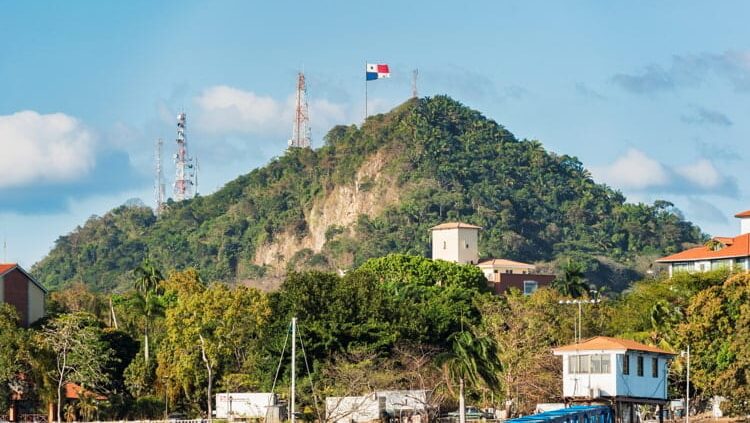
Ancon Hill is a 654-foot hill overlooking Panama City. The surrounding area was used for Panama Canal administration by the Americans when they were running the canal. The Panama flag which flies from the summit is a symbol of pride for Panamanians who, in 1977, reclaimed the hill.
A hike up Ancon Hill gives you a glimpse of Panama’s rainforest. Although it is not a strenuous walk, it is hot and often muggy, so bring water with you. Along the way you might see iguanas, toucans, sloths, and plenty of butterflies.
From the summit you will get the best view in Panama City. Framed by lush rainforest, one vantage point looks out across the bay. In the foreground you have the old buildings and some of Casco Viejo. Bright paint and red tiles dominate, further away the skyscrapers of modern Panama, grey concrete, and tinted glass. Out at sea you’ll see container ships awaiting to cross the canal.
The Miraflores Visitor Center is a 20 minute drive from Panama City. It has an interactive museum which charts the history of the canal. You can view artefacts used during the construction of the canal and visit a floor dedicated to the wildlife of the area. There is also a cinema where you can view a film about the canal.
The best part about the Panama Canal is the chance to watch ships navigate the locks up close. The locks are an engineering marvel and seeing the water rush in to raise the ships is an awesome site. Simply being so close to the ships gives perspective on their vast size, definitely not an everyday experience.
Casco Viejo is a must for any tourist to Panama City. It is a UNESCO World Heritage site and one of the most unique places you will find in Central America. The area has lots of the city’s best bars and restaurants, as well as being a beautiful place to walk around and spend time in.
Rooftop bars offer happy hours in the afternoons, and beautiful views of the city during the night. There is every kind restaurant you could want, including traditional Panamanian food.
Panama is home to the most expensive coffee in the world, Geisha Coffee. The coffee grows on land where orange groves used to be so the coffee has picked up some of the citrus, and that be detected in the flavor and aroma.
Casco Viejo has some excellent coffee houses where you can taste the best of Panama’s coffee. You can also buy beans or powder for to take away with you.
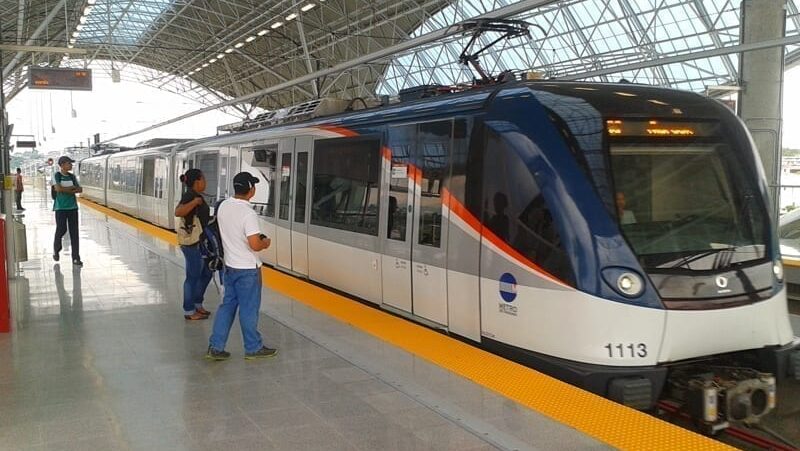
Panama City has a modern subterranean train system, the only one in Central America. The system uses Japanese technology which is another first for Central America.
There are benefits to travelling on the Metro. It has air conditioning, and the price is 35 cents per journey. For retirees with a Pensionado you can travel for 24 cents.
Maintenance for the Metro is a regular thing, and it has an extra number of subway cars running at rush hour: It does get busy but no more so than any other major city. New lines for the Metro are under construction and currently you can go from Albrook Bus Terminal out to Tocumen International Airport.
The bus service in Panama City is the other main form of public transport.
There is also a more modern bus network called the Metro Bus Network. These air-conditioned buses cost 25 cents, rising to US$1.50 if your route takes you to Corredor Norte or Corredor Sur.
Uber is the best way to hire a vehicle in Panama City. Taxi drivers have a well-earned reputation for trying to rip off tourists. This is impossible with Uber.
If you do have to travel by taxi, then agree on the fare before you start the journey. Ask a local how much they would pay for the fare and use this guide price. Be prepared to ask more than one driver.
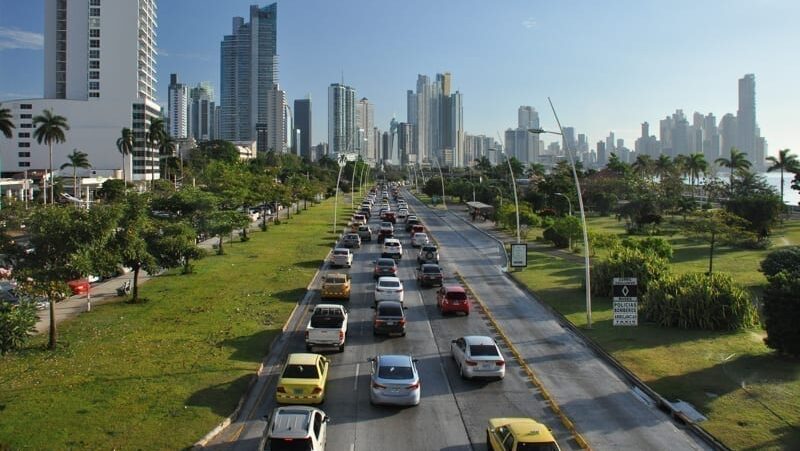
During rush hour, traffic is a nightmare. Leaving Panama City towards the city beaches is an exercise in patience on a Friday afternoon or Saturday lunchtime. Heavy rain makes things worse.
Humidity rises and sometimes the sun doesn’t break through the clouds for days on end. If you are out on foot without an umbrella during a downpour, you might need to shelter for up to an hour.
Checkout operators and cashiers work at less than half the speed of their U.S. counterparts. Waiting in line at a supermarket will give you enough time to plan your week’s meals.
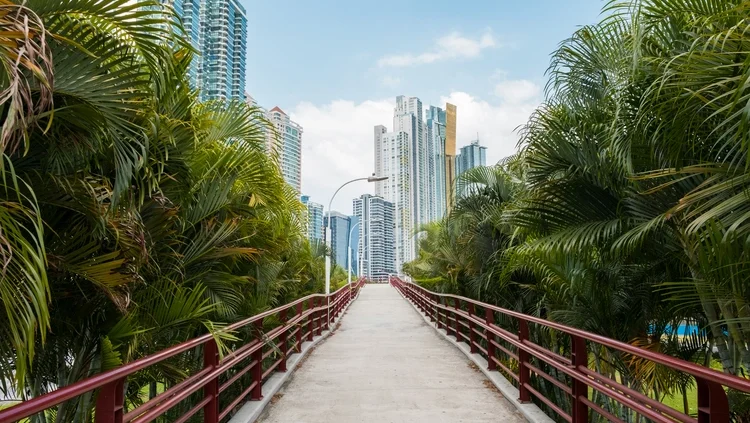
Panama’s culture has its drawbacks, but it is rare to find a stressed Panamanian. Living in Panama gives you a new perspective on what is worth worrying about.
The health care system in Panama is top notch and costs a fraction of what you would pay at home. Dental services in Panama are similarly excellent.
The temperature in Panama City is unlikely to ever drop below 84°F. Summer is between January and April and that makes Panama City an ideal winter getaway.
Panama City has a rainforest within its borders. Plants and flowers thrive here: You can see hummingbirds, iguanas, sloths, and monkeys within the city borders.

Reviewed By Kathleen Peddicord
Kathleen is the Live and Invest Overseas Founding Publisher. She has more than 30 years of hands-on experience traveling, living, and buying property around the world.


Start Your New Overseas Life Today
A world full of fun, adventure, and profit awaits! Sign up for our free daily e-letter, Overseas Opportunity Letter, and we’ll send you a FREE report on the 10 Best Places To Retire In Style Overseas Today 2024
We Value Your Privacy! We will not share your email address with anyone else, period.
Generally, Panama City, Panama, is safe, especially in well-known districts. On the other hand, you can keep yourself and your things safe by doing the following:
Panama has a tropical climate characterized by heat and humidity. The rainy season lasts from May to January, and the dry season is shorter, from January to May.
Also, between May and December, the country sees about 250-700 millimeters of rainfall.
You can explore Panama City using its public transport, which offers air-conditioned buses and the first Metro train in Central America.
Plus, get a three-in-one “RapiPass” to access the Metro, buses, and the Albrook bus station.
Nestled in the verdant highlands of Panama’s Chiriquí Province, Boquete is a small town with a big reputation. This charming...
I’ve made a career of scouting the globe to identify interesting places for people to spend time and money. I’ve...
Corn. Just saying it feels dull. Let’s try Spanish: maíz. That already sounds more interesting. But how intriguing is corn,...
Arriving in Panama and getting situated can be an overwhelming experience for some people. Getting your bearings straight, figuring out...


We Value Your Privacy! We will not share your email address with anyone else, period.
As seen in

© 2008 – Live and Invest Overseas™ – All Rights Reserved.
Sign up to receive the FREE daily e-letter, Overseas Opportunity Letter and we’ll immediately email you our editors’ latest research report…
BEST PLACES TO RETIRE
FREE REPORT:
Sign up for FREE and learn how to live the good life on a modest budget, find bargain property, and more. Plus, check out our free report on the 10 BEST PLACES TO RETIRE.
RETIRE OVERSEAS AND LIVE LIKE ROYALTY
Top Countries
Budgets
Affordable
Resources
Real Estate
Overseas Property Alert
How To Become Independently Wealthy And Fund The Lifestyle Of Your Dreams
Buying Real Estate For Cashflow
Discover tips and strategies used by global property investing veterans
Explore Our Latest Posts
Learn how to invest and purchase property abroad…
Conferences
ACCESS FRANCE WORKSHOP
INTERNATIONAL PROPERTY SUMMIT
CARIBBEAN VIRTUAL CONFERENCE
Contact Our Events Team:
Toll-Free U.S. and Canada:
1 (888) 627 8834
From Outside North America:
1 (443) 599 1221
Working Hours
Monday – Friday 08:00 am – 17:00 pm EST.
Reach us with your questions by email at: events@liveandinvestoverseas.com
Store
Overseas Havens Reports
Conference Kits
Lahardan Books
Subscriptions
Free Report
THE 10 BEST PLACES TO RETIRE IN 2025

Sign up to receive the FREE daily e-letter, Overseas Opportunity Letter and we’ll immediately email you our editors’ latest research report…
We Value Your Privacy! We will not share your email address with anyone else, period.
Follow Us:
© 2008 - Live and Invest Overseas - All Rights Reserved.